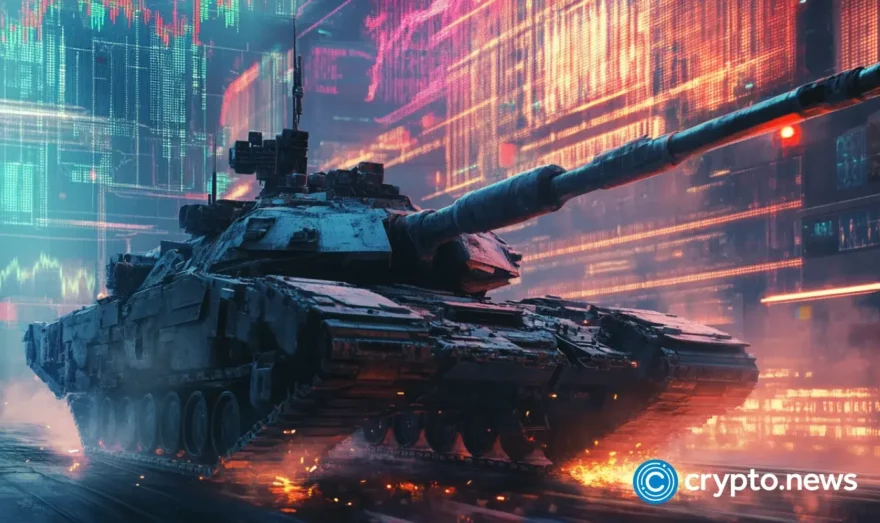DAOs are redefining the corporation, and the law isn’t ready | Opinion

Disclosure: The views and opinions expressed here belong solely to the author and do not represent the views and opinions of crypto.news’ editorial.
While crypto has already changed the way we trade and invest, it’s now starting to challenge the way we organize, and that’s what decentralized autonomous organizations, or DAOs, are about.
- Despite massive on-chain treasuries, most DAOs aren’t recognized as legal entities — they can’t sign contracts, pay taxes, or protect members from liability.
- While DAOs promise openness and decentralized governance, the absence of legal personality means “community ownership” often masks concentration of power among a few dominant participants.
- DAO “wrappers” like LLCs or foundations fix basic compliance issues but clash with on-chain rules, create multi-jurisdictional confusion, and raise costs — making smaller teams less competitive.
- A new legal framework is needed — one that defines roles like “digital fiduciaries” and creates a global “DAO passport” for accountability, transparency, and cross-border recognition of decentralized organizations.
In fact, DAOs aren’t a small experiment, as they hold over $20 billion in liquid assets, yet, in the eyes of most legal systems, they barely exist. With no CEOs, no headquarters, and no recognized judicial status, a DAO just doesn’t fit into the categories that courts and regulators have always used for companies.
So, the real problem is that the law must adapt to organizations that look nothing like those it was built to govern. Simply put, as DAOs spread, legal systems must rethink what an “organization” even is and whether real accountability survives when code rules.
The promise and the void
At their best, DAOs offer openness, speed, and real collective ownership, so anyone with an internet connection can show up, pitch an idea, or vote. This works because code handles the core processes, making governance much more transparent than in a traditional company. As a result, you get a system that lowers barriers to entry and lets people coordinate at scale without managers.
But the same features that make DAOs efficient also reveal a big weakness. Token holders might feel like owners, yet under the law, they’re not. In other words, without a legal personality, DAOs can’t sign contracts, pay taxes, or protect members from personal liability.
The deeper issue is that when no one is truly accountable, “community ownership” becomes a performance. In practice, that means the loudest or wealthiest voices, those with the time and resources to participate, dominate proposals, set the agenda, and sideline the broader community.
Moreover, when participation becomes nominal, the promise of collective ownership disappears, innovation slows, and trust erodes inside the community and beyond. That’s why DAOs must address real accountability, or the vision of open governance looks open but changes nothing.
The key questions are whether lawmakers and builders can close that gap and whether traditional entity wrappers solve the problem or merely create new trade-offs.
Legal patchwork, slower adoption
For now, most DAOs have tried to bridge the regulatory gap by borrowing from the corporate world. Some register as LLCs, others launch foundations, and a few jurisdictions, such as Wyoming and the Marshall Islands, let DAOs register as their own type of entity. Collectively, these moves help to fix the basics, as a wrapper lets you sign contracts, hold assets, and pay vendors like any company, but it complicates everything that follows.
Legal wrappers often clash with on-chain rules, leaving the community to choose between code and compliance. That choice rarely stays internal, because once teams are spread across jurisdictions, the same DAO suddenly falls under multiple regulators, tax systems, and even conflicting statutory definitions of what a DAO is.
All of this results in a legal patchwork that raises fixed costs across jurisdictions, pushes key decisions off-chain to a few signers, and ultimately slows adoption, as smaller teams get priced out and users see less transparency. And these trade-offs are already visible in how DeFi projects operate…
For instance, Uniswap’s recent “DUNI” proposal shows what entity wrapping really costs. The plan sets aside $16.5 million in UNI for taxes and legal defense, with potential IRS liability expected under $10 million. If big names can afford this, smaller DAOs can’t, so they delay releases, limit access for U.S. users, or move offshore entirely. That’s how compliance stalls innovation, making bureaucracy define the pace of adoption.
In such a situation, the fix won’t come automatically. From where I stand, what DAOs need is a regulatory framework built for decentralization itself.
The road ahead
So, what now? In my view, if DAOs are ever going to become more than experiments, the law must catch up. We need a framework built for decentralization from the ground up, institutional scaffolding that keeps DAOs open, but makes them accountable.
To me, one practical fix is to rethink fiduciary duty for the digital age. Each DAO names a “digital fiduciary,” specifically, a role set in code and recognized by law. In that case, there’s always someone accountable when things go wrong, so trust doesn’t depend on reputation alone but is backed by clear responsibility.
Another solution is a harmonized baseline across borders or a kind of “DAO passport.” It would lay out minimum standards for transparency, liability protection, and dispute resolution. Thus, projects wouldn’t have to rebuild their legal structure every time they crossed into a new country.
That’s the real fork in the road. If the law can’t adapt, DAOs remain a gray-zone tool for insiders. But if regulators step up, DAOs could evolve into the next layer of the global economy — open, borderless, and accountable by design.















